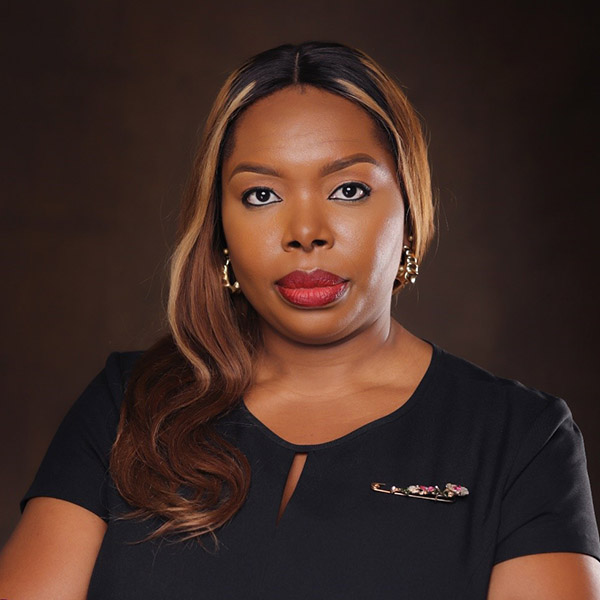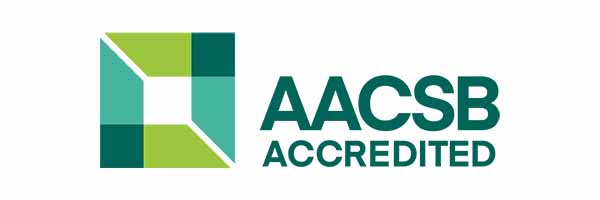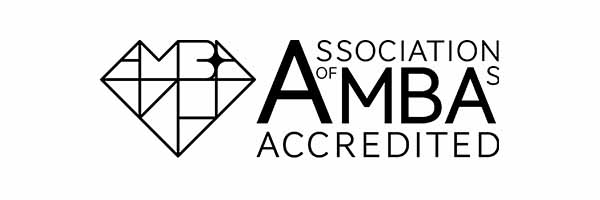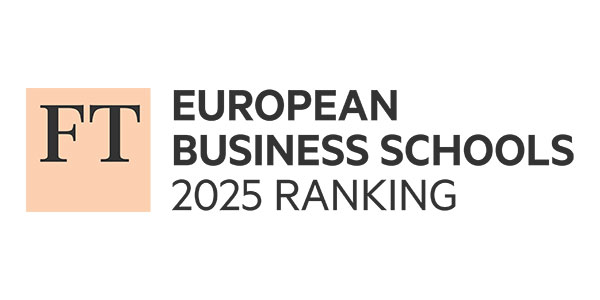MSc Marketing (January)
ApplyKey facts
- Start date: January
- Accreditation: AACSB, EQUIS & AMBA
- Study mode and duration: 12 months full-time
Study with us
As an MSc Marketing postgraduate student you join one of the first marketing departments established in the UK.
Strathclyde Business School’s Department of Marketing draws on more than fifty years of internationally leading research, innovation and impact, and global engagement to deliver an outstanding student experience.
MSc Marketing offers research-led teaching and industry input to shape students to tackle grand challenges in marketing and wider society.
- MSc Marketing is suitable for non-business graduates who want to pursue a career in this area
- Students develop an understanding of marketing theory and practice in relation to individuals, organisations and wider ecological and societal issues
- This reflects the dynamic and technologically innovative nature of contemporary marketing, spanning the private, public and third sectors
The Place of Useful Learning
UK University of the Year
Daily Mail University of the Year Awards 2026
Scottish University of the Year
The Sunday Times' Good University Guide 2026
Why this course?
Our Masters of Marketing programme covers core marketing theory and practice relating to strategy, consumers, research and sustainability. This provides a basis for more specialised study tailored to your future career and skills development.
Key features of the course include:
- a teaching team with demonstrated research excellence spanning a wide variety of marketing disciplines
- experiential learning via case studies and high-calibre industry collaborations and speakers
- capstone projects with the opportunity to lead a theory-based or practice-based research project
- skills-based teaching focused on transferable skills and employability prospects
Our marketing postgraduate students are truly international with representations from all parts of the globe which further enhances your learning experience.
Meet the Director of Postgraduate Studies at Strathclyde Business School
Dr Natalie McDougall tells us more about this course.

What you'll study
Your first semester will comprise core marketing classes:
- Strategic Marketing Management
- Consumer Behaviour
- Marketing Research in a Digital Age
- Key Skills
In the second semester, you'll work towards more specialised study, relating to:
- Brand Management
- Social Responsibility & Sustainability
- e-Marketing
- Retail Marketing
- Destination Marketing
- Integrated Marketing Communications.
Over the Autumn term, you'll undertake a capstone research project. You’ll choose one of two pathways:
- a theory-based Marketing Dissertation
- a practice-based Marketing-Works Live Project
Accreditations & affiliations
The Department of Marketing has an international reputation for high-quality teaching and research. Many of our staff act as advisors to private and public organisations and are active across a range of knowledge exchange initiatives.
Some staff members hold senior positions in esteemed professional associations such as
- Chartered Institute of Marketing
- Market Research Society
- Research Excellence Framework
- Academy of Marketing
As a Department, we are fully aligned with the University’s goals of being a socially progressive, international technological university and are one of the largest departments in the triple-accredited Strathclyde Business School. The Department’s teaching and research activities fully embrace the University motto as a 'Place of Useful Learning'.
The Department of Marketing also houses the Stephen Young Institute for International Business.
Employability & career development
As an MSc Marketing student, you'll have access to a dedicated careers specialist, employability seminars, interview support and CV compilation. The Department works closely with our Careers & Employability Service to ensure the programme is taught with an employer’s perspective in mind. Classes provide students with hard and soft skills to succeed at Strathclyde and progress into the job market.
The Department's collaboration and engagement with industry gives you the opportunity to build networks and engage with potential employers. Our practice-based Marketing Works Live Project has been showcased as an effective post-study pathway for international students by the All-Party Parliamentary Group’s International Student Report.
Triple-accredited business school
All MSc Marketing Students will take the following classes in the first semester:
Strategic Marketing Management
This introductory class covers key tools and theories used within marketing management. Moving through the Marketing Planning Process, you will learn how to undertake market evaluation, make informed decisions and implement strategies to succeed in competitive markets.
By the end of this class, you should be able to apply marketing knowledge in a management capacity to develop and defend marketing plans.
Consumer Behaviour
This class provides you with an understanding of the principal concepts of consumer behaviour. This acknowledges the central role of consumers in marketing strategy but expands beyond traditional buyer behaviour to explore ‘having’ and ‘being’ as value formation processes that influence the way we feel and live.
By the end of this class, you should be able to analyse consumer behaviour, drawing on theoretical constructs and models to analyse and explain consumption across a range of contexts.
Marketing Research in a Digital Age
This class provides you with the practical skills required to design and lead research in marketing. This builds on the need to understand the market, competitors and customers and the role of secondary, qualitative and quantitative research in doing so. Underpinned by the Marketing Research process, students will move through problem formulation, research design, data collection, data analysis and presentation of findings.
By the end of the class, you should be able to utilise a range of traditional and digital data collection methods to address marketing problems, devise solutions and assess outcomes.
Retail Marketing Management
This class assesses the role of retailing within the context of the overall supply chain and within the economy. We look at key operational issues such as store design and layout, location and customer service. The class also focuses on changing trends for retail and how technology has played a role in shaping the retail industry. We place this in the global context, demonstrating how important the retail sector is in driving the global economy.
By the end of the class, you will be familiar with the various tools and techniques used by retailers and be able to apply these to develop retail strategy in international and global contexts, addressing cultural, social, economic, and legal issues.
Key Skills
This class is taken alongside core Marketing classes, supporting you to develop skills associated with academic writing, presentations, group work and research needed to complete a postgraduate programme. This responds to feedback from industry that emphasises the need for high standards of performance in skills and business practices. This supports the more conceptual learning in Marketing, as well as developing the potential of our graduates to become senior business managers who work in global markets.
In Semester 2, you'll move into more focused study. The following classes will likely be delivered:
Brand Management & Strategy
This class provides a detailed understanding of brand theory and application of key brand strategies. Class content is rich in branding theory, and you'll put the theory to practice applying key branding applications to major global brands. You'll gain a clear appreciation of the role of brand strategy within the corporation’s operating plan. This will entail consideration of environmental factors causing changes to the structure and composition of the brand portfolio as well as discussion of conceptual issues surrounding the strategic roles of brand management.
By the end of the class, you'll have the skills required to manage effectively in a global brand environment.
Social Responsibility & Sustainability
This class explores sustainability and the role of marketing in society as an agent of change. Marketing has a substantial role to play in tackling the biggest challenges in our society, and in particular driving societal discourse and market change towards the attainment of the Sustainable Development Goals (SDGs).
A number of different techniques are explored to identify and exploit vectors for change through different approaches to understanding market systems, targeting key stakeholders to drive change, and marketing tactics for reshaping market, organisational and consumer behaviour.
By the end of the class, you should be equipped to challenge marketing roles, particularly around product – service development, business models, positioning and communication, to engage in greater levels of sustainability.
Destination Marketing Management
This class presents destination as the core element of tourism supply. We define destination in spatial as well as cultural/symbolic terms and explore a wide variety of sectors such as hospitality, the built and natural environments, cultural heritage, entertainment, sport and retailing. This provides the opportunity to consider the diverse nature of the destination and lack of central ‘control’, which implies quite specific challenges and responses in its management and marketing.
By the end of this class, you will be equipped with the skills necessary to respond to changes and challenges in destination marketing.
Artificial Intelligence in Marketing
Given the rapid rise of artificial intelligence (AI) as a transformative force in how we work, live, and create value, this class explores its growing role in marketing. You will examine key concepts within the marketing AI ecosystem, including strategy, ethics, regulation, and the idea that AI can perform a range of tasks through multiple intelligences. The class also looks at how AI creates new value-creation opportunities across the marketing mix and considers the future of AI-enabled marketing. In response to shifting job markets, where some roles are becoming redundant while new AI-supported opportunities emerge, you will gain the knowledge and skills needed to navigate these changes, in line with the University of Strathclyde’s commitment to useful learning.
By the end of this class, you will be equipped with the theoretical insight and practical skills needed to navigate and thrive in a world where AI is playing an increasingly influential role in marketing.
Integrated Marketing Communications
This class will explore relevant marketing communications theories, consider the role and purpose of marketing communications, critically review constituent components of the marketing communications mix and consider how marketing communication tools are used in practice. The role of Marketing Communications in bridging the gap between an organisation and its many stakeholders and providing a face voice for organisations will be emphasised. In particular, the class will consider the need for and management of Integrated Marketing Communications (IMC)
By the end of the class, you will be able to identify factors that impact upon the selection, implementation and evaluation of effective IMC and use this to develop communications strategy. This is an exciting, vibrant and contemporary topic that can contribute to laying the foundations for future careers in marketing.
Dissertation
The Dissertation offers you an opportunity to study, in depth, a specific area of the MSc of your own interest.
Working individually, you'll be expected to conduct a literature review, develop an appropriate research methodology, undertake empirical research and present findings with implications for international marketing theory and practice. You will be assigned a supervisor from the Department to oversee progress.
Marketing Works (Industry Project)
The Marketing Works (Industry Project) provides you with a challenging organisation-based, action-learning opportunity to advise a company on a marketing problem or opportunity.
You will consult your client organisation with the objective of delivering realistic recommendations which, if implemented, could reasonably be expected to help generate strategic marketing plans. You will be expected to consult relevant theory, design and execute appropriate data collection and analysis, and present key outcomes and recommendations to the client. You'll be assigned a supervisor from the Department to oversee progress.
Learning & teaching
The Department of Marketing adopts a research-led teaching approach designed to facilitate integration of the theoretical and practical aspects of the programme.
All classes require a high level of student engagement and interaction between students is encouraged.
A comprehensive support package is provided to enhance your learning and to ensure maximum benefit during your period of study. This includes:
- access to a wide range of text and digital resources via the University library and databases
- a suite of IT resources, including on-site hardware and an extensive list of software downloads
- state-of-the-art teaching facilities across the Business School and our dedicated Learning & Teaching Building
- support mechanisms such as staff-student liaison meetings, student representations, drop-in student hours and module and programme evaluations
Learning & teaching methods
Learning and teaching methods will vary between courses. As a department, we work towards the Education for Sustainable Development Goals and seek to embed entrepreneurial competencies via a wide range of contemporary learning and teaching activities. This includes:
- case studies
- simulation activities
- inquiry or problem based learning
- debate and discussion
- flipped classrooms
- experiential and project-based learning
- guest lectures
- self-motivated reading and research
Assessment
Assessment varies between classes.
Methods used are informed by the descriptors for Masters degrees of the:
- Scottish Credit and Qualifications Framework (SCQF)
- Framework for Qualifications of Higher Education Institutions in Scotland (FQHEIS)
You'll be required to conduct both primary and secondary research to undertake critical analysis across assessments that comprise individual and group elements.
Submission formats include written reports and essays, oral presentations, examination and class tests, and reflective submissions.
Chat to a student ambassador
Want to know more about what it’s like to be a Strathclyde Business School student at the University of Strathclyde? A selection of our current students are here to help!
Our Unibuddy ambassadors can answer all the questions you may have about their course experiences and studying at Strathclyde, along with offering insight into life in Glasgow and Scotland.

In addition to Strathclyde lecturers delivering classes, we were exposed to guest lecturers who are industry experts and this provided insights into industry trends and the application of theoretical concepts in the work environment
MSc Marketing (January)
Entry requirements
| Academic requirements | Minimum second-class Honours degree, or overseas equivalent, in a non-marketing discipline. A Business degree may be considered, provided it does not contain significant marketing components. |
|---|---|
| English language requirements | Students whose first language is not English must have a minimum of 6.5 IELTS score, with no individual score lower than 5.5. Get more information about the English language requirements for studying at Strathclyde. |
Pre-Masters preparation course
The Pre-Masters Programme is a preparation course held at the University of Strathclyde International Study Centre, for international students (non-UK/Ireland) who do not meet the academic entry requirements for a Masters degree at University of Strathclyde.
Upon successful completion, you'll be able to progress to this degree course at the University of Strathclyde.
International students
We've a thriving international community with students coming here to study from over 140 countries across the world. Find out all you need to know about studying in Glasgow at Strathclyde and hear from students about their experiences.

Fees & funding
All fees quoted are for full-time courses and per academic year unless stated otherwise.
Fees may be subject to updates to maintain accuracy. Tuition fees will be notified in your offer letter.
All fees are in £ sterling, unless otherwise stated, and may be subject to revision.
Annual revision of fees
Students on programmes of study of more than one year (or studying standalone modules) should be aware that the majority of fees will increase annually.
The University will take a range of factors into account, including, but not limited to, UK inflation, changes in delivery costs and changes in Scottish and/or UK Government funding. Changes in fees will be published on the University website in October each year for the following year of study and any annual increase will be capped at a maximum of 10% per year. This cap will apply to fees from 2026/27 onwards, which will not increase by more than 10% from the previous year for continuing students.
| Scotland | £16,800 |
|---|---|
| England, Wales & Northern Ireland | £16,800 |
| Republic of Ireland |
If you are an Irish citizen and have been ordinary resident in the Republic of Ireland for the three years prior to the relevant date, and will be coming to Scotland for Educational purposes only, you will meet the criteria of England, Wales & Northern Ireland fee status. For more information and advice on tuition fee status, you can visit the UKCISA - International student advice and guidance - Scotland: fee status webpage. Find out more about the University of Strathclyde's fee assessments process. |
| International | £31,100 |
| Visa and immigration | International students may have associated visa and immigration costs. Please see student visa guidance for more information. |
| Available scholarships | Take a look at our Business School scholarships. |
Please note: the fees shown are annual and may be subject to an increase each year. Find out more about fees.
How can I fund my course?
Scottish postgraduate students
Scottish postgraduate students may be able to apply for support from the Student Awards Agency Scotland (SAAS). The support is in the form of a tuition fee loan and for eligible students, a living cost loan. Find out more about the support and how to apply.
Don’t forget to check our scholarship search for more help with fees and funding.
Students coming from England
Students ordinarily resident in England may be to apply for postgraduate support from Student Finance England. The support is a loan of up to £10,280 which can be used for both tuition fees and living costs. Find out more about the support and how to apply.
Don’t forget to check our scholarship search for more help with fees and funding.
Students coming from Wales
Students ordinarily resident in Wales may be to apply for postgraduate support from Student Finance Wales. The support is a loan of up to £10,280 which can be used for both tuition fees and living costs. Find out more about the support and how to apply.
Don’t forget to check our scholarship search for more help with fees and funding.
Students coming from Northern Ireland
Postgraduate students who are ordinarily resident in Northern Ireland may be able to apply for support from Student Finance Northern Ireland. The support is a tuition fee loan of up to £5,500. Find out more about the support and how to apply.
Don’t forget to check our scholarship search for more help with fees and funding.
International students
We've a large range of scholarships available to help you fund your studies. Check our scholarship search for more help with fees and funding.
Glasgow is Scotland's biggest & most cosmopolitan city
Our campus is based right in the very heart of Glasgow. We're in the city centre, next to the Merchant City, both of which are great locations for sightseeing, shopping and socialising alongside your studies.
Apply
For information and guidance on the application process, take a look at our How to Apply web page.
Contact us
SBS Postgraduate Admissions
Telephone: +44 (0)141 553 6105 / +44 (0)141 553 6116
Email: sbs.admissions@strath.ac.uk
Strathclyde Business School, University of Strathclyde
199 Cathedral Street
Glasgow
G4 0QU
Have you considered?
We've a range of postgraduate taught and Masters courses similar to this one, which may also be of interest.





